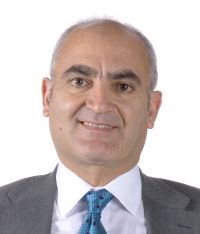For GlaxoSmithKline ($GSK), advancing a malaria vaccine into Phase III in 2009 was a triumph in itself. When now R&D chairman Moncef Slaoui joined the firm as an immunologist in 1988, the project had stalled. Many doubted it was even possible to make a vaccine for parasitic infections.
 |
| GSK R&D chairman Moncef Slaoui |
Fresh thinking reenergized the project and it started to rack up impressive results. In 2004 it cut the risk of infants contracting the most severe form of malaria by 57%, raising hopes a disease that kills 660,000 a year can be brought under control. Recent months have seen small setbacks, though. New data--published in the New England Journal of Medicine--shows the effectiveness of the vaccine declines quickly.
"It was a bit surprising to see the efficacy waned so significantly over time. In the fourth year, the vaccine did not show any protection," Ally Olotu of the Wellcome Trust Research Programme in Kenya told Reuters. Olotu led follow-up work into how kids 5 to 17 months old vaccinated in a Phase II trial fared over four years. The team is now looking into whether giving a booster shot can extend protection.
Even at current levels of protection, there are positives to be taken from the study. For every 100 children vaccinated, 65 cases of malaria were averted over a four-year period. Malaria Vaccines Initiative director David Kaslow told the Guardian this is a major public health benefit, and warned against becoming "over-fixated on efficacy." There is also a risk of reading too much into the trial. GSK is playing down the significance of the findings, with a spokesperson saying no "definitive answers about the duration of protection" can be drawn from the small, mid-stage trial.
Phase III trials have also had mixed results, with a paper in December suggesting the vaccine is less effective in babies than infants. Further research is now needed to assess the sub-groups of kids that benefit most and the duration of protection, but overall researchers are encouraged.
"There is still a clear benefit to the vaccine," senior study author Phillip Bejon said.
- check out the Reuters article
- get more from the Guardian piece
- here's the NEJM paper
- see what Wellcome Trust wrote